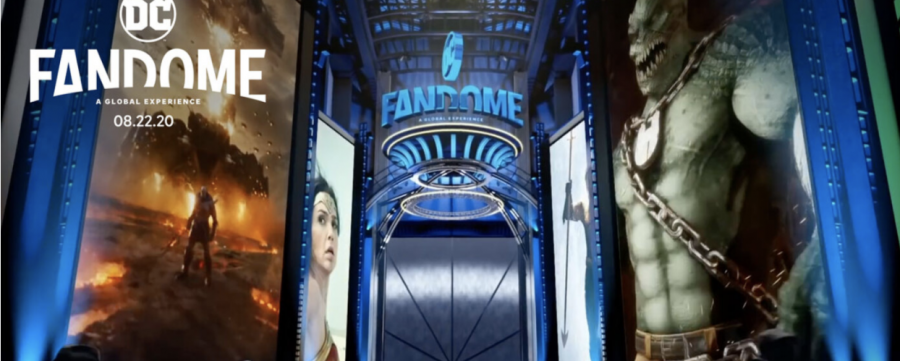DC FanDome: How virtual conventions should be done
Enter the virtual FanDome.
August 28, 2020
This year has not been a great one for many reasons, but one reason that stands out to the nerd in me is the lack of physical conventions for media announcements. Usually, summer is a jackpot of cool news about what to expect in the near future of video games, movies, comic books, TV shows, etc. with the press conferences stylishly presented in front crowds of rabid fans. It’s hard to describe the excitement and electricity that comes with the summer series of conventions, not just as a place to receive news, but as a way to see your favorite media creators as they talk about what they’re working on.
But then the COVID-19 pandemic hit, and suddenly, holding events in crowded convention centers no longer seemed like a good idea. The domino row of cancellations started falling among the major pop culture conventions, ranging from Electronic Entertainment Expo (E3) 2020, which primarily focuses on video games, “Star Wars” Celebration 2020, a convention for all things “Star Wars” and the perennial San Diego Comic-Con, which has been the go-to place for comic book news for many years, and in more recent years, the place for the blockbuster superhero movies and TV shows to be announced.
Some digital press conferences have been held successfully, such as Sony’s PlayStation 5 reveal event, but most attempts at pulling off whole conventions have been unsuccessful. Comic-Con@Home, San Diego Comic-Con’s intended replacement, amounted to little more than a series of Zoom calls that reminded me too much of the breakout rooms professors force us into to encourage discussion. It had a monotonous, stilted feeling throughout and no major announcements, possibly due to major companies not wanting to be associated with the format.
DC FanDome, which was DC Entertainment’s all-day digital convention, was different. Taking place Aug. 22 on the DC FanDome website, free for all attendees, it was evident that DC poured a great deal of money and effort into their convention. Emulating the halls of a typical convention center, FanDome created a virtual stage that, using a copious amount of green screens, made it seem as if the presenters were in the same room together and actually interacting with each other. In the FanDome, arena images were superimposed on the “walls,” the floors stylishly moved around and characters came to life. With this spectacle, the request that viewers sit in front of their computer screens for a whole day is far less demanding.
While there were worries going in, due to one-third of DC Comics’ editorial staff being laid off less than two weeks before this event, things mostly went off without a hitch. Although, there was a conspicuous lack of comic book announcements, other than the reveal of a new Batman miniseries by “12 Years a Slave” screenwriter John Ridley and the announced revival of the Milestone Media line of comics. However, a second, smaller FanDome is due on September 12, with more possible announcements.
But in the meantime, the FanDome that did occur had plenty of announcements, ranging from a new “Suicide Squad” video game, a teaser of the upcoming film “The Batman” and a first look at the upcoming director’s cut of the 2017 film “Justice League,” which Warner Bros. will release as a miniseries on HBO Max.
Most importantly, the feeling of a real convention was there. Conventions aren’t just made of panels and announcements; they’re places for fans to pay tribute to their favorite properties, and some semblance of that was there. Between all the panels were small Q&As from fans around the world, pictures of cosplayers, short sketches, and sequences where superstar artist and DC publisher Jim Lee would speed-draw superheroes and review fan creations. While not comparing to the raw electricity that comes with a live convention, the effort at creating that atmosphere was admirable.
Overall, DC FanDome was a showcase of what digital conventions could look like going forward, and while it might’ve lacked the exclusivity of San Diego or E3, the accessibility and creative presentation made this a valid substitute during these trying times.



